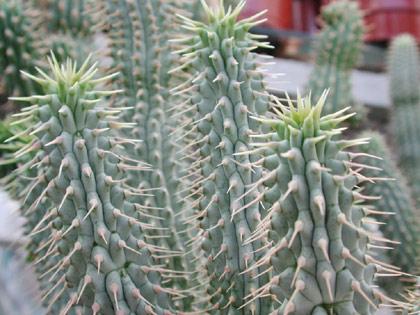Dr. Assaf Rosenthal

hoodia gordonii
Not long ago I referred to the difficulty that countries and companies in the "Third World" have to maintain "copyrights", when the reference is mainly to natural resources: plants, minerals, and their use. I mentioned, among other things, the Hoodia plant, a plant from the Asclepiaceae family, unique to the Kalahari Desert in the DRAP. The inhabitants of the desert, the San tribes (known as Bushmen) know the plant and its properties and chew it during their travels to suppress the feeling of hunger.
According to the Convention of Biological Diversity (CBD), natural resources, traditional information, use of traditional medicines, etc. are protected. Anyone who profits from an innovative development based on these sources (medicines, cosmetics, food products, etc.) must reward a portion of the profits to the residents of the area from which the information is drawn or, in the current case, the plant.
Several years ago we registered a patent at: Council for Scientific and Industrial Research (CSIR). According to the listing, Sun has "copyrights" and therefore a right to lucrative rewards that are derived from the thanksgiving plant.
Understanding the importance of the plant to science and the development of medicines and recognizing the need on the one hand and the Convention on the other hand, the Sun representatives signed an agreement that would allow the development and production of the hodya.
Companies for the production of drugs and food supplements in the DPRK, in Germany, Switzerland and the USA "discovered" Hodia and began to develop anti-obesity drugs from it, in order to produce the drugs on a commercial scale
Many plants were stolen (literally) from the Kalahari and since obesity is one of the (negative) phenomena prevalent in "Western" society and many treat the phenomenon as a disease, it is clear that whoever sells a means to prevent obesity makes a lot of money.
Relying on the treaty, the San representatives through the Working Group of Indigenous Minorities in Southern Africa (WIMSA) appealed to the governments of the countries to stop the theft of the plants on the one hand and on the other hand to pay their community royalties from the sale of the products. Because as the reference points out, continued use is illegal and constitutes biological robbery as defined in the convention.
According to the inspection of the representatives of the Sun, about ten products derived from the Hoodia plant are marketed under the trade names Hoodia, Hoodia Kapsel, Hoodia Plus. Hoodia L10. When advertising for products mentions the Sun tradition, that is: a plant stolen from the land of the Sun is used, the products are advertised with the help of the Sun tradition and, contrary to the laws and art, no huge profits are paid. In other words, robbing the Sun/
In order to establish the existing treaty and in an attempt to enforce it, a number of countries are holding talks with the aim of adding a clause called Trade-Related Intellectual Property Rights, but apparently without the strong backing of the World Trade Organization it will be difficult for "Third World" countries to bypass treaties and exercise the natural and legal right of their residents.
Dr. Assaf Rosenthal
Tour guide/leader in Africa and South America
0505640309 / 6372298 08 for details Tel.
Email assaf@eilatcity.co.il
A compilation of Dr. Assaf Rosenthal's articles on the Hidan site
https://www.hayadan.org.il/BuildaGate4/general2/data_card.php?Cat=~~~447628109~~~218&SiteName=hayadan
